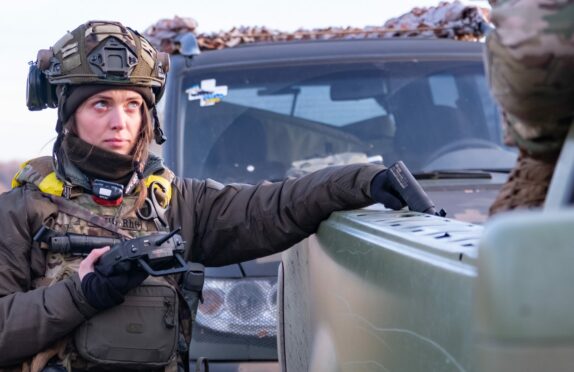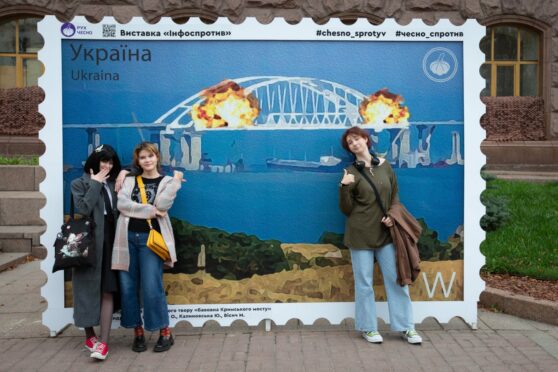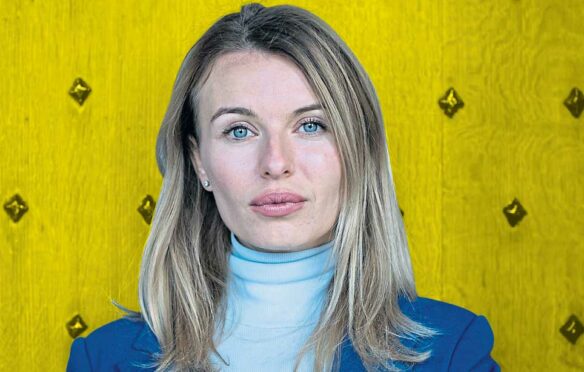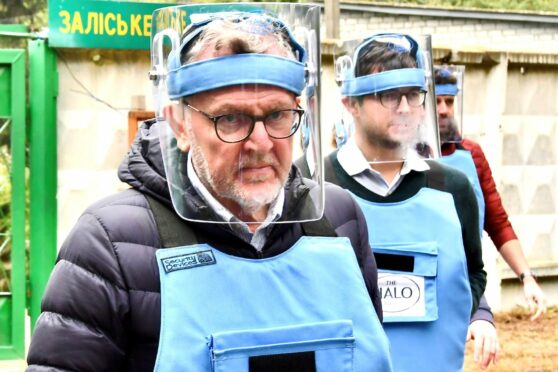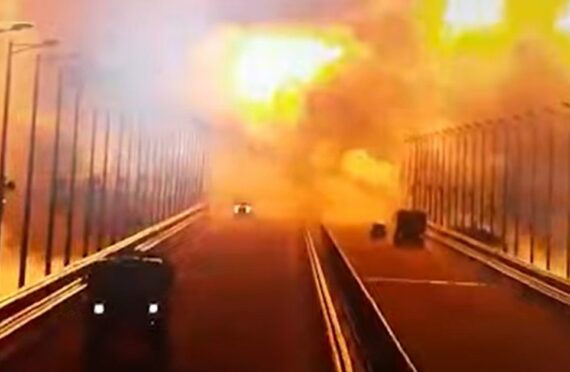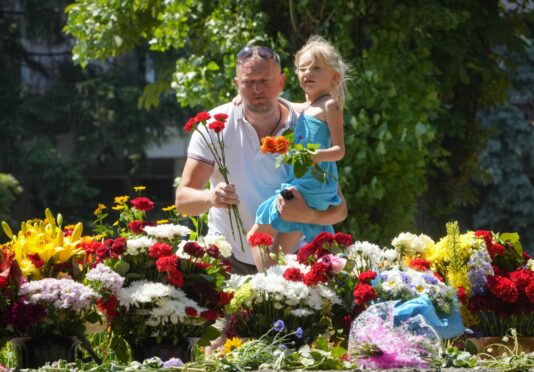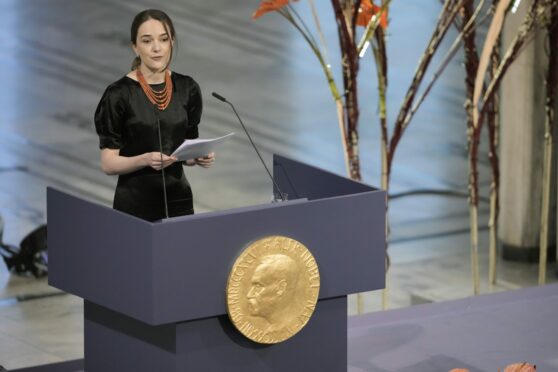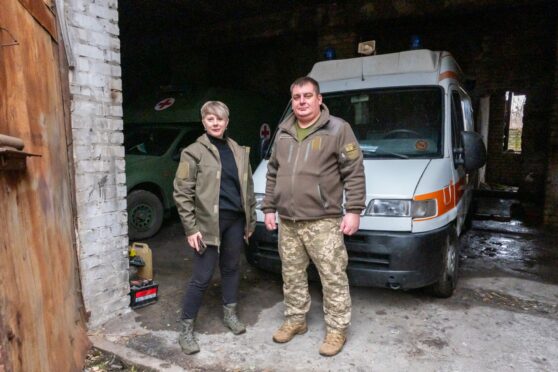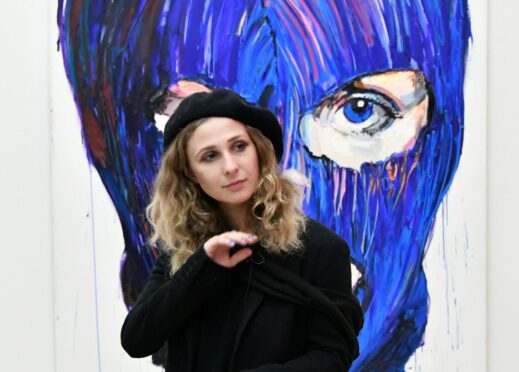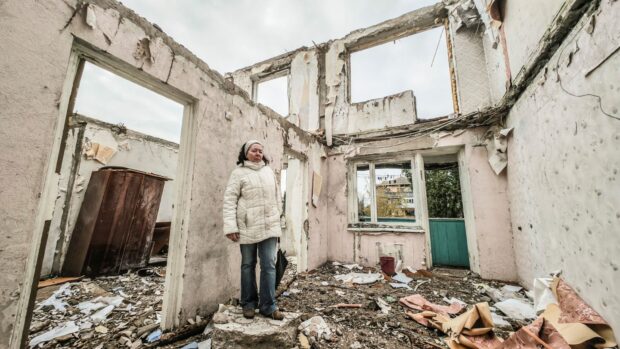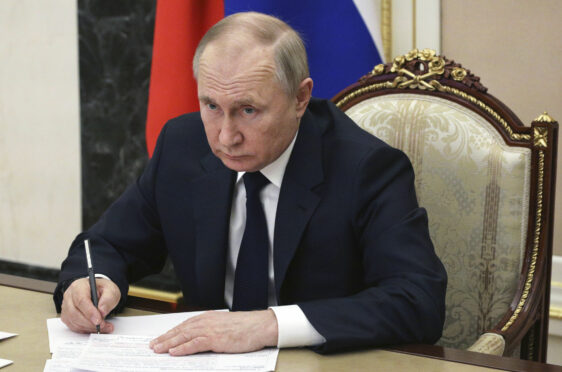
Gordon Brown yesterday stepped up his campaign for a new international tribunal to investigate and prosecute Vladimir Putin, his ministers and military commanders for the invasion of Ukraine.
The former prime minister joined another, Sir John Major, to lead an international coalition of more than 140 leading politicians, academics and lawyers urging the creation of Nuremberg-style tribunals after Vladimir Putin’s forces laid waste to towns and cities across the country.
Putin has been accused of ordering the indiscriminate shelling of civilian buildings including homes, schools, hospitals and churches. A special war crimes investigation was launched last week by the International Criminal Court (ICC) but observers fear its limited powers mean Putin cannot be held to account for ordering the invasion of Ukraine. The ICC would need a referral from the United Nations’ Security Council to investigate Putin’s aggression but Russia would have the power of veto.
The former Labour prime minister said he agreed with US president Joe Biden and believed the Russian president was a war criminal and called for international tribunals like those used to prosecute leading Nazis after the Second World War.
Brown added: “When you look round the world, a message really has to be sent out. Since 1990, we have assumed that democracy and the rule of law will prevail. He is replacing that by the use of force and if the message is not sent out now then of course we face aggression in other countries which may go unpunished as well.
“Innocent people, children, mothers are being terrorised. Bodies lying on the street in Mariupol, people not getting medical treatment. These are international crimes and they are crimes against humanity, but in this case they are also the crime of aggression.”
An online petition launched by the campaign already has 250,000 signatures and is aiming for two million. The petition, published via online activism network Avaaz, states: “There will never be peace without accountability.”
However, writing in today’s Sunday Post, David Schwendiman, one of the world’s most experience war crimes investigators, warns a Nuremburg-style trial may not be the answer.
Schwendiman, who was the chief prosecutor of the Kosovo Specialist Prosecutor’s Office in The Hague from 2016 to 2018, said of the scheme’s supporters: “Their sentiment is understandable, but the history is wrong for many reasons. It is not prudent, and frankly a waste of time and energy, to begin talking about a special international tribunal.”
He said the ICC is the correct body to hold Putin to account because politics would halt the powers of the United Nations Security Council.
He said: “Nothing suggests Russia, or China for that matter, both permanent members of the UN Security Council, would permit a Nuremburg-style trial in the case of Ukraine.
“Creating special purpose, special jurisdiction, ad hoc international tribunals like the International Criminal Tribunal for the Former Yugoslavia (ICTY) is so politically fraught and so extraordinarily expensive and burdensome it is highly unlikely the international community would even consider it for Ukraine whether through the UN, which as noted is a non-starter, or in some way without resort to the UN, especially since the ICC already exists.”
Russian troops have been accused of shelling civilian areas indiscriminately. On Wednesday, a theatre sheltering more than 1,000 civilians in the besieged city of Mariupol was bombed by Russian forces.
Miraculously nobody was killed in the attack but subsequent rescue efforts have been hampered by street fighting between the two sides. The following day, at least 17 people were injured when a maternity hospital in the same city was hit in an airstrike. That same day, 21 people were reportedly killed when Russian artillery destroyed a school and a community centre in Merefa, near Kharkiv.
Eliot Higgins, the founder of investigative journalism group Bellingcat, which helped uncover evidence of war crimes in Syria and elsewhere, yesterday said Putin and his military commanders must be held accountable.
He highlighted Friday’s visit of Syrian President Bashar al-Assad, who has been accused of war crimes including the use of chemical weapons, to the United Arab Emirates (UAE), his first trip to an Arab country since the start of the Syrian civil war in 2011 as observers suggest the crimes of leaders and states previously shunned by the West have been forgotten as the world turns against Putin.
Higgins said: “If Vladimir Putin’s Russia is rehabilitated into the global community when its crimes have gone unanswered –and with such a wealth of evidence around them – this will only embolden the next autocrat who decides to devastate other nations for their own gain.”
Higgins said Russia’s conduct in Ukraine was remarkably similar to its behaviour in Syria. He said: “For those of us who investigated war crimes in Syria, the real fear is that despite the widespread documentation of alarmingly similar acts in Ukraine, there will be no accountability for the new crimes being committed.”
Last week, experienced war crime investigator Bill Wiley told The Post there is already evidence Putin has committed atrocities since the February 24 invasion.
The Canadian, who worked on both the Yugoslavia and Rwanda tribunals, said looking at “patterns” rather than specific attacks or events will provide the best basis for Putin to be prosecuted.

Enjoy the convenience of having The Sunday Post delivered as a digital ePaper straight to your smartphone, tablet or computer.
Subscribe for only £5.49 a month and enjoy all the benefits of the printed paper as a digital replica.
Subscribe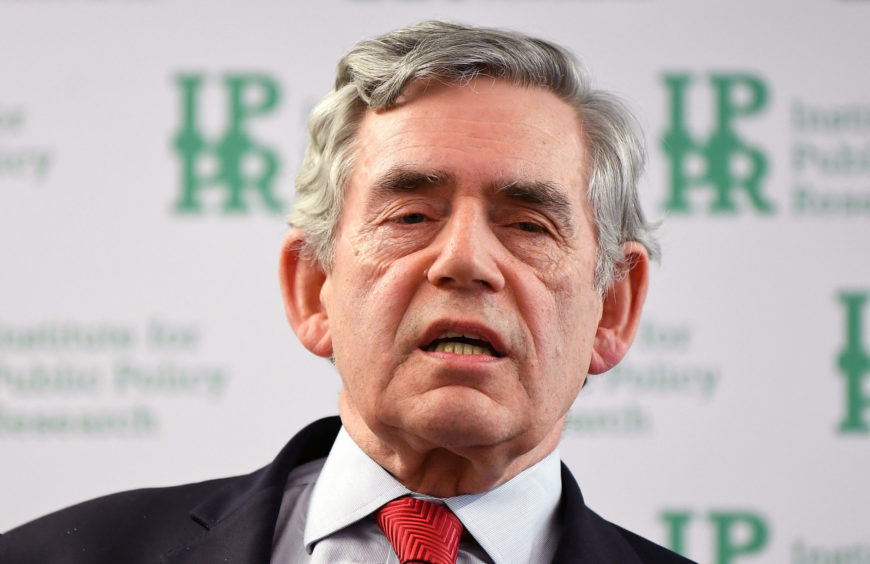 © Victoria Jones/PA Wire
© Victoria Jones/PA Wire